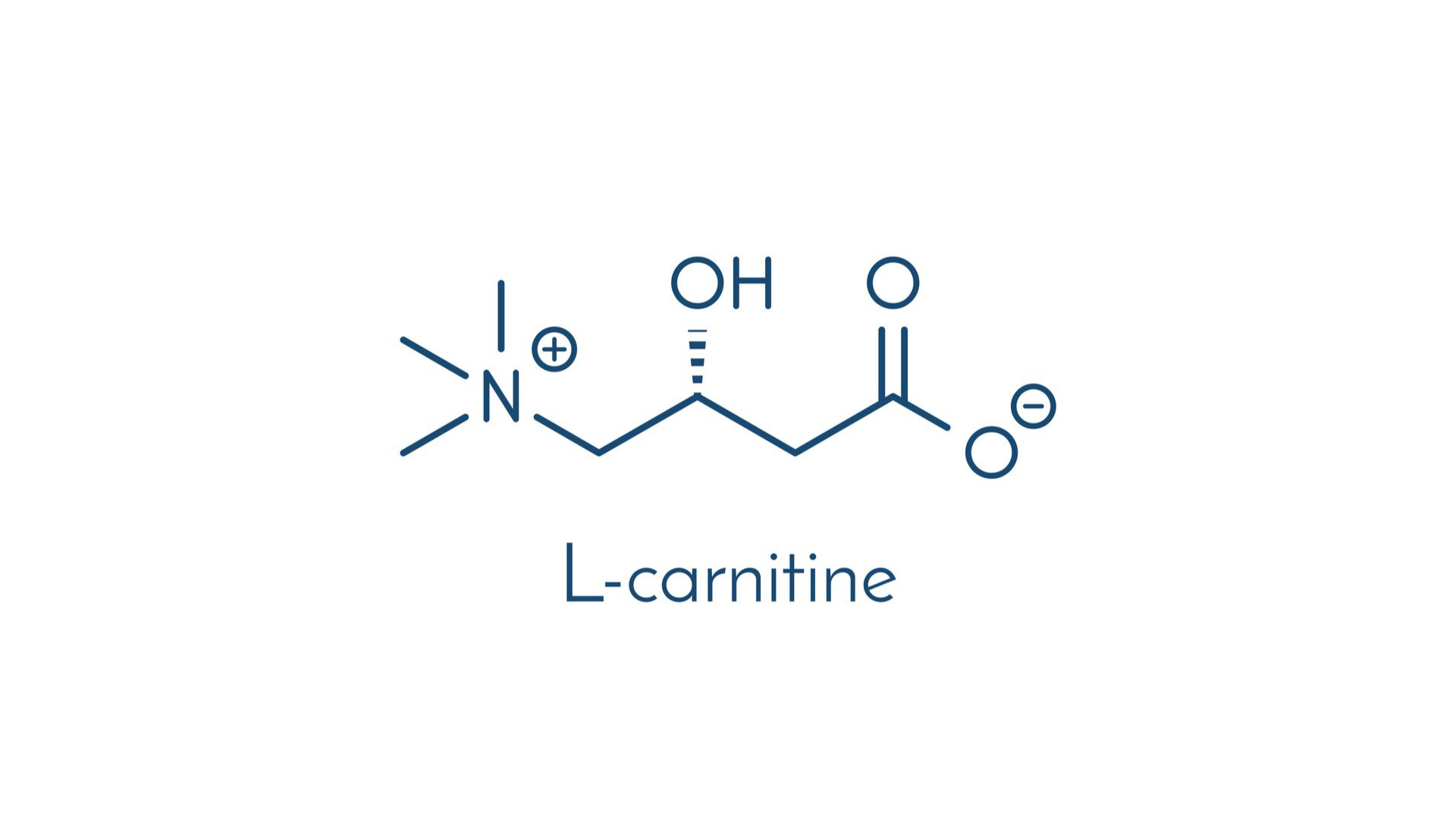Carnitine is a non-essential amino acid which plays an important role in the human body in the metabolism of fatty acids and in the transformation of fats into energy. Produced by the body or taken from food or dietary supplements, it can be found in two stereoisomers: the biologically inactive D-carnitine, and L-carnitine,biologically active.

The chemical form of L-carnitine
L-carnitine: what is it for?
Numerous studies have been done regarding L-carnitine and it has been found that, in addition to being a long-chain fatty acid transporter, it has various noteworthy functions.
Here are 3 of the reasons why L-Carninita is recommended for athletes:
- It has a neuroprotective and blood vessel protection function in subjects who have had ischemia.
- It is a strong cardio-protector . In fact, in the prophylaxis of heart diseases, it is often included as a supplement / drug since the heart mainly uses fatty acids and, if it does not have enough L-carnitine, its metabolism risks slowing down.
- It is proven to help improve the aerobic performance of athletes . The 1982 World Cup, in which Italy won, marked an extraordinary success for carnitine supplements because the players had included them on their list of food supplements.
Effects on sports performance
In the 1980s I participated in a double-blind study on the ability of L-carnitine to increase sports performance at the Federal Technical Center of the Italian Motorcycle Federation. During the study, they did tests on the consumption and quality of the gases during a motorcycle race simulation to establish the effective benefit of the L-carnitine iso in motocross, a very intense sport from a cardiocirculatory point of view.
The results were exceptional in terms of increased performance, due to the energetic boost induced by the amino acid. There was also a marked deterioration as soon as L-carnitine was discontinued (withdrawal syndrome). Since then I have always integrated L-carnitine in my training, in the past as a pilot, today as a lover of anti-aging and fitness.
How and how much to take L-carnitine
Since L-carnitine cannot be assimilated by the body without the presence of insulin, the most sensible thing to do is to take it with carbohydrates . I recommend taking it at one of the following times of the day: in the pre-workout, or in the post-workout.
- Before training: always in addition to carbohydrates to exploit its ability to produce nitric oxide and thus obtain an even greater "pump" of the muscles.
- In the post-workout : adding sources of simple carbohydrates to the shaker so as to assimilate it better and guarantee all the beneficial effects.
The properties of L-carnitine are much more than those listed here. Let's say that as far as athletes are concerned, it is good to take it for slimming purposes or to increase performance and muscle mass to get to carry out more intense workouts and go beyond your limits.
Sources of L-carnitine
The highest concentrations of carnitine and L-carnitine are found in red meat . In the table below I summarize the main foods that are rich in them:
| Beef steak |
95 mg |
| Ground beef |
94 mg |
| Pork meat |
27.7 mg |
| Bacon |
23.3 mg |
| Cod fish |
5.6 mg |
| Chicken breast |
3.9 mg |
| Cheese |
3.7 mg |
| Ice cream |
3.7 mg |
| Whole milk |
3.3 mg |
| Whole grain bread |
0.36 mg |
| Asparagus |
0.195 mg |
| White bread |
0.147 mg |
| Pasta |
0.126 mg |
| Rice |
0.0449 mg |
| Eggs |
0.0121 mg |
Carnitine content for every 100 g of food
In general, 20 to 200 mg of carnitine per day are ingested by people on an omnivorous diet, while those following a vegetarian or vegan diet can ingest a minimum of 1 mg / day. There appears to be no advantage in taking a dose greater than 2 g at one time, as absorption studies indicate that saturation is achieved with this dose.
Write a comment, let us know what you think about L-carnitine!
